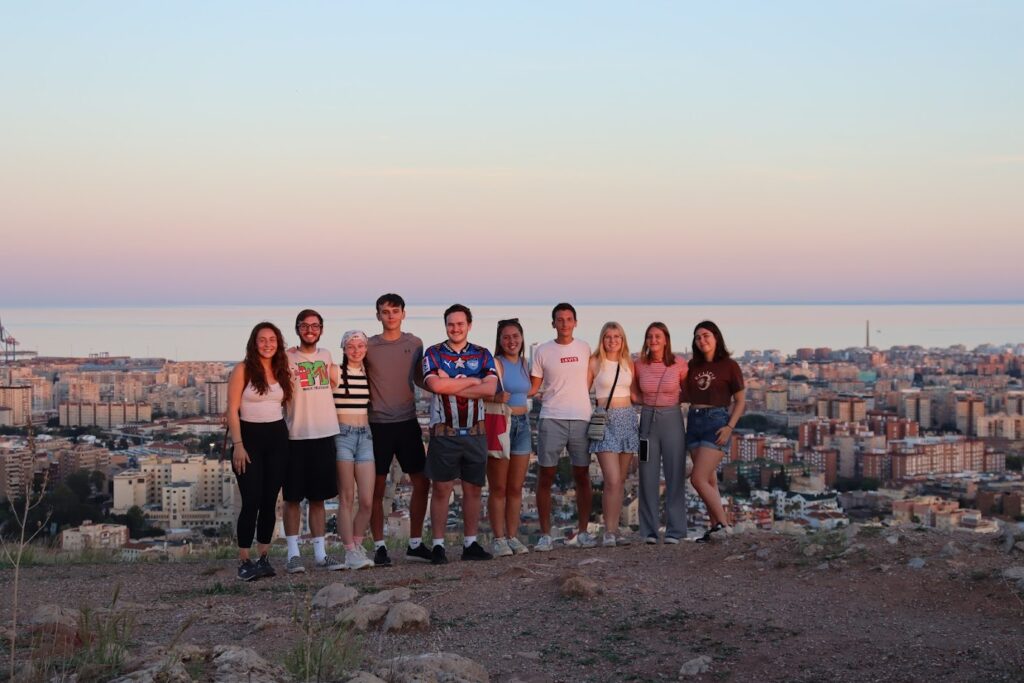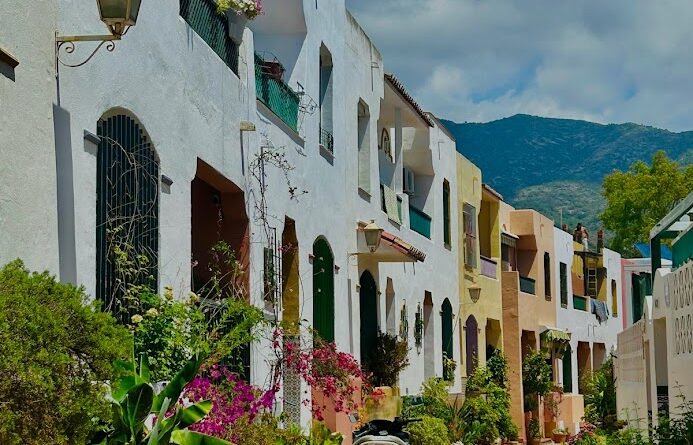Emily in Spain: Five Months Back Home
I returned from my spring semester abroad in Málaga, Spain at the end of June. Having lived in Maryville my whole life, getting picked up at McGhee Tyson Airport and taking Alcoa Highway home felt natural. Disorientingly natural. It was like I had woken up from a dream.
I slept until the early afternoon the first two weeks back. Jet lag was certainly a factor, but I was also emotionally exhausted. Final exams ran up until the last week I was in Spain, leaving me with little free time to knock out an extensive bucket list.
Those final days, I was out of bed at sunrise to explore the city and up late just before the next having fun with friends. In the last 24 hours, I crammed in a couple museum visits, a bit of souvenir shopping, a trip to the climbing gym and a few rounds of pádel (a popular racket sport that I’m apparently terrible at).
In the end, I crossed everything off my list. My greatest feat was zipping my suitcases shut and making it through the airport terminal without crying. At takeoff, I watched my new home shrink to a Polly Pocket city, until it was all behind me.
I’ve been back in the states for five months, and I still feel like I’m stuck between two worlds. I wish my friends here and there could meet. They would have the best time together!
I’ve been slow to write a reflection because it’s difficult to capture how positively transformative this experience has been. Once I graduate from Maryville College, I plan to attend graduate school in Europe. I look forward to updating you next semester when everything is settled.
In the meantime, I have some advice for those of you considering studying abroad. Many of these tips apply to international travel in general.
Find ATM workarounds. International transaction fees are steep. Instead of splitting the check at restaurants, I volunteered to cover it on my card and asked my friends to reimburse me in cash. From this alone, I collected ample spending money.
Learn about student discounts. With the student ID issued by my host school, I saved on bus passes and museum entrance fees. If you plan to study in Europe, consider joining the Erasmus Student Network (ESN) for discounts on flights and international shipping.
Get a gym membership. Physical activity dissolves language barriers. I joined a climbing gym, and I eventually became friends with the regulars. If gyms aren’t your scene, try out other places people gather. I had a friend that went to bingo night down the road and another that attended church.

Explore unique study environments. Since my classes were taught in my second language, I had to study pretty diligently to keep up. To maximize my time in Spain, I studied at unconventional places, like beaches and at botanical gardens. A highlight for me was a day trip to Marbella, a nearby city, with a classmate. We quizzed each other on the bus ride to and from our destination, reviewing our notes on the beach in between.
Learn the appropriate ways to express greetings, farewells, apologies, and gratitude. Each locale has distinct social gestures. For instance, while some Tennesseans might opt for “Howdy” over “Hello”, “Buenas” is a common Spanish shorthand for “Buenas tardes” (“Good afternoon”). Show your respect for the local culture by familiarizing yourself with these nuances. It’s especially important to be able to apologize promptly and sincerely in the event of a misunderstanding.
If you can’t find it at the store, it’s possible to live without it. Kirsten Shepphard, Director of Global Engagement, shared this one in the study abroad pre-departure course I took. I found it to be spot on, especially when it came to grocery shopping. Once I let go of my search for back-home favorites, I discovered new ones.
On the food note, I recommend purchasing a meal plan. You’ll get to try local dishes, while building some structure and fellowship into your day.
Upgrade your tech. I invested in a phone with a better camera (for the memories) and safety features. Emergency SOS via satellite, a feature of the iPhone 14 and newer models, allows you to contact emergency services outside of cellular and Wi-Fi coverage. I also purchased an eSIM, so I could have cell service as soon as I arrived.
Additionally, I subscribed to a VPN (to access sites that were finicky about logins from outside the U.S.) and befriended a local with a printer.
Don’t wait until the end to travel. I traveled to France for a weekend trip but otherwise stayed in the country. By the end of the semester, I was too wrapped up in my studies to venture far. I don’t have any regrets because I got to know Málaga as well as I could, but if travel is important to you, prioritize it early on.
Hopefully, you’ll find these tips helpful. I tried to steer clear of the more obvious ones.
This time last year, I was nervous to spend the upcoming semester abroad. Almost a half a year after my return, I continue to miss the experience, and the people I got to know, dearly. Don’t let fear get in the way of your adventure. Pursue it before life ties you down.
The Center for Global Engagement (CGE) helps you pay as little out of pocket as possible to study abroad, even offering airfare scholarships. Start planning your future study abroad experience at www.maryvillecollege.edu/international.

